Professor’s Muscular Dystrophy Research to Be Funded with Javits Neuroscience Investigator Award
Written by |
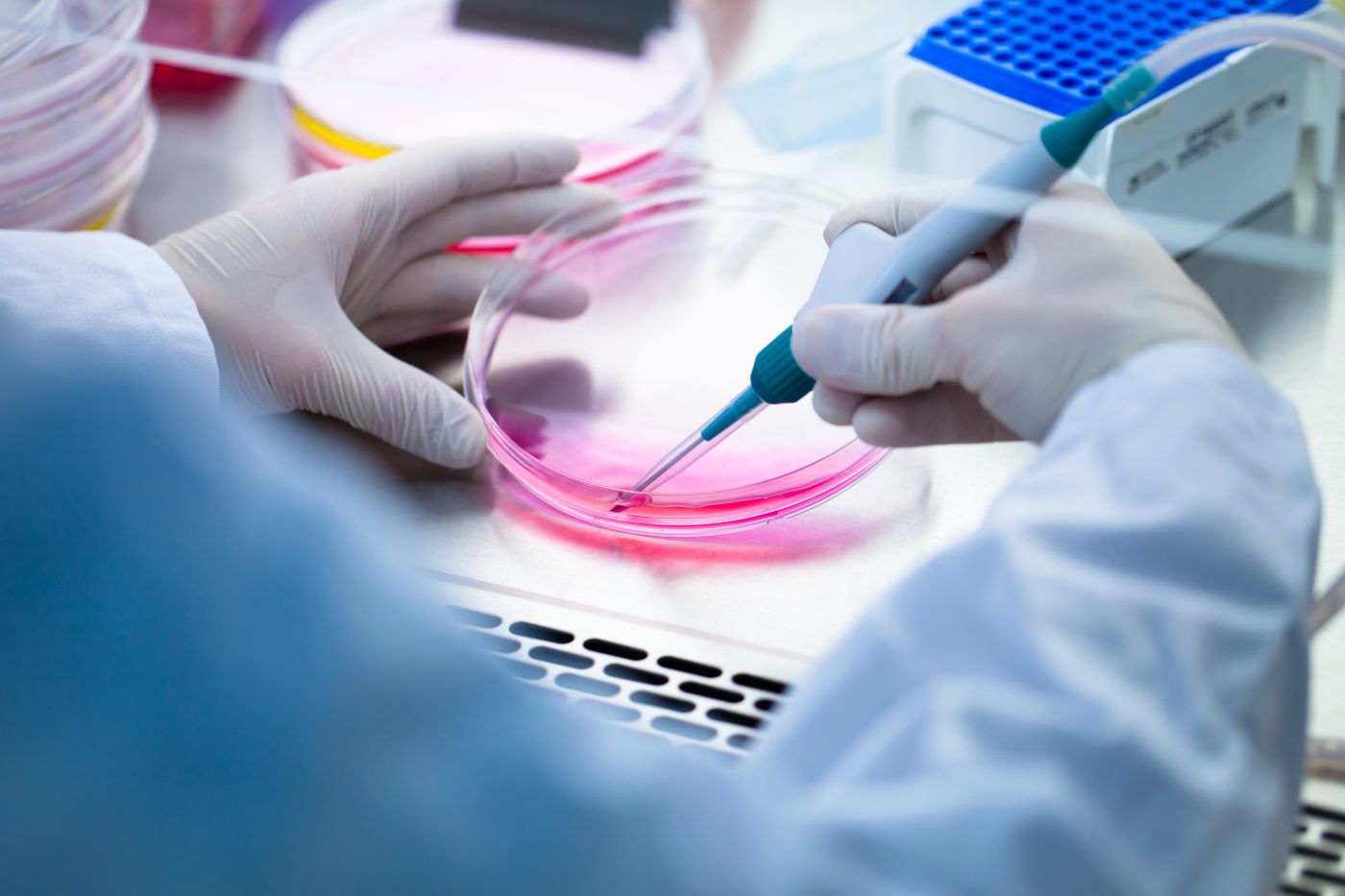
 Charles Thornton, M.D., the Saunders Family Distinguished Professor in Neuromuscular Research at the University of Rochester Medical Center’s (URMC) Center for Neural Development & Disease in Rochester, New York, has received a Javits Neuroscience Investigator Award from the National Institutes of Health’s National Institute of Neurological Disorders and Stroke (NINDS) to further his research in muscular dystrophy.
Charles Thornton, M.D., the Saunders Family Distinguished Professor in Neuromuscular Research at the University of Rochester Medical Center’s (URMC) Center for Neural Development & Disease in Rochester, New York, has received a Javits Neuroscience Investigator Award from the National Institutes of Health’s National Institute of Neurological Disorders and Stroke (NINDS) to further his research in muscular dystrophy.
The Javits award is a conditional, seven-year research grant given to investigators who have a distinguished record of substantial contributions and a history of exceptional talent, imagination, and scientific achievement for superior competence and outstanding productivity.
The U.S. Congress established the $2.3 million Senator Jacob Javits Awards in the Neurosciences in 1983, named in honor of the late Sen. Javits, R-NY, to be administered by the National Institute of Neurological and Communicative Disorders and Stroke (now the National Institute of Neurological Disorders and Stroke, or NINDS).
Javits was a victim of the degenerative neurological disorder amyotrophic lateral sclerosis — ALS, or Lou Gehrig’s disease — and a strong supporter of research into a wide variety of of brain and nervous system disorders. The Javits award is initially for a period of four years, then, after an administrative review, an additional project period of three years may be awarded. Since the program’s inception in fiscal year 1984, more than 600 Javits Investigator Awards have been granted.
 “Making progress on treating paralytic diseases is difficult and requires a dedicated team of clinicians and researchers,” Thornton said in a URMC release. “To bring a team together and keep it together over the long run, you need a stable stream of financial support. This award will help us continue our work through a very important stage when new therapies are being tested and others are on the horizon.”
“Making progress on treating paralytic diseases is difficult and requires a dedicated team of clinicians and researchers,” Thornton said in a URMC release. “To bring a team together and keep it together over the long run, you need a stable stream of financial support. This award will help us continue our work through a very important stage when new therapies are being tested and others are on the horizon.”
Thornton’s main research focus is on myotonic dystrophy, a form of muscular dystrophy caused by dysfunction of ion channels in the muscle membrane and characterized by progressive muscle wasting and weakness, and one of the more common genetic causes of major disability and shortened life expectancy. Myotonia is described as a state of hyperexcitability in muscle fibers in which a voluntary contraction or electromechanical stimulation can provoke trains of repetitive action potentials, causing a delay in relaxation after a muscle contraction.
The repetitive action potentials are generated by the muscle fibers independent of any input from the motor neuron. Over time, people with myotonic dystrophy experience difficulty walking, swallowing, and breathing, and the disease can also affect the eyes, heart, and brain. There is currently no treatment to stop the progression of the disease.
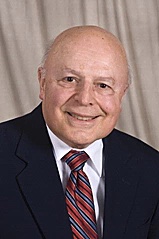 URMC researchers in Rochester have been investigating myotonic dystrophy for more than a quarter-century. Investigators include Thornton and his colleagues Richard Moxley III, M.D., professor of neurology with special qualifications in child neurology; neuromuscular
URMC researchers in Rochester have been investigating myotonic dystrophy for more than a quarter-century. Investigators include Thornton and his colleagues Richard Moxley III, M.D., professor of neurology with special qualifications in child neurology; neuromuscular 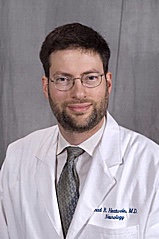 clinician and researcher, Associate Prof. Chad Heatwole, M.D.; Eric Logigian, M.D., director of the URMC neuromuscular electrodiagnostic laboratory.
clinician and researcher, Associate Prof. Chad Heatwole, M.D.; Eric Logigian, M.D., director of the URMC neuromuscular electrodiagnostic laboratory.
The team has created a national network of myotonic dystrophy patients, physicians, and 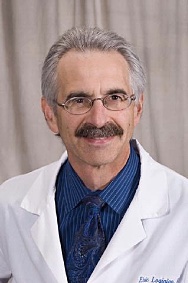 scientists dedicated to developing new myotonia therapies.
scientists dedicated to developing new myotonia therapies.
Research conducted by members of the collaborative effort ranges from understanding the fundamental biological mechanisms of muscle and heart deterioration; studying how myotonic dystrophy affects the lives of patients and families; how it evolves over time; to most recently — whether drug treatments can stop myotonia’s progression or help relieve the symptoms.
In a study published in the journal Nature in 2012, Thornton and his research team, partnering with researchers at Carlsbad, California-based Ionis Pharmaceuticals, showed that  drug treatment can largely reverse muscle symptoms in mice with myotonic dystrophy — an approach that is now being tested in human patients.
drug treatment can largely reverse muscle symptoms in mice with myotonic dystrophy — an approach that is now being tested in human patients.
Funding provided by the Javits award will help the URMC team refine the myotonia treatments they have under development, and learn more about how to maximize the treatments’ beneficial effects and minimize associated risks.
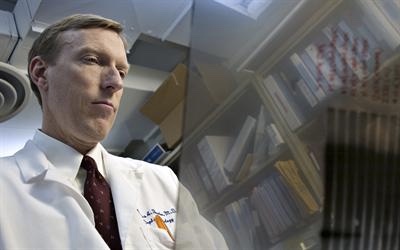 “While initial results in laboratory testing are promising, more work will be needed to optimize how this new treatment is used and find out whether it is helping people with the disease,” Thornton said. “The work we will do in the laboratory will help guide how future clinical studies are run and will define whether these treatments serve to stabilize problems associated with the disease or actually improve symptoms that people are already experiencing.”
“While initial results in laboratory testing are promising, more work will be needed to optimize how this new treatment is used and find out whether it is helping people with the disease,” Thornton said. “The work we will do in the laboratory will help guide how future clinical studies are run and will define whether these treatments serve to stabilize problems associated with the disease or actually improve symptoms that people are already experiencing.”





